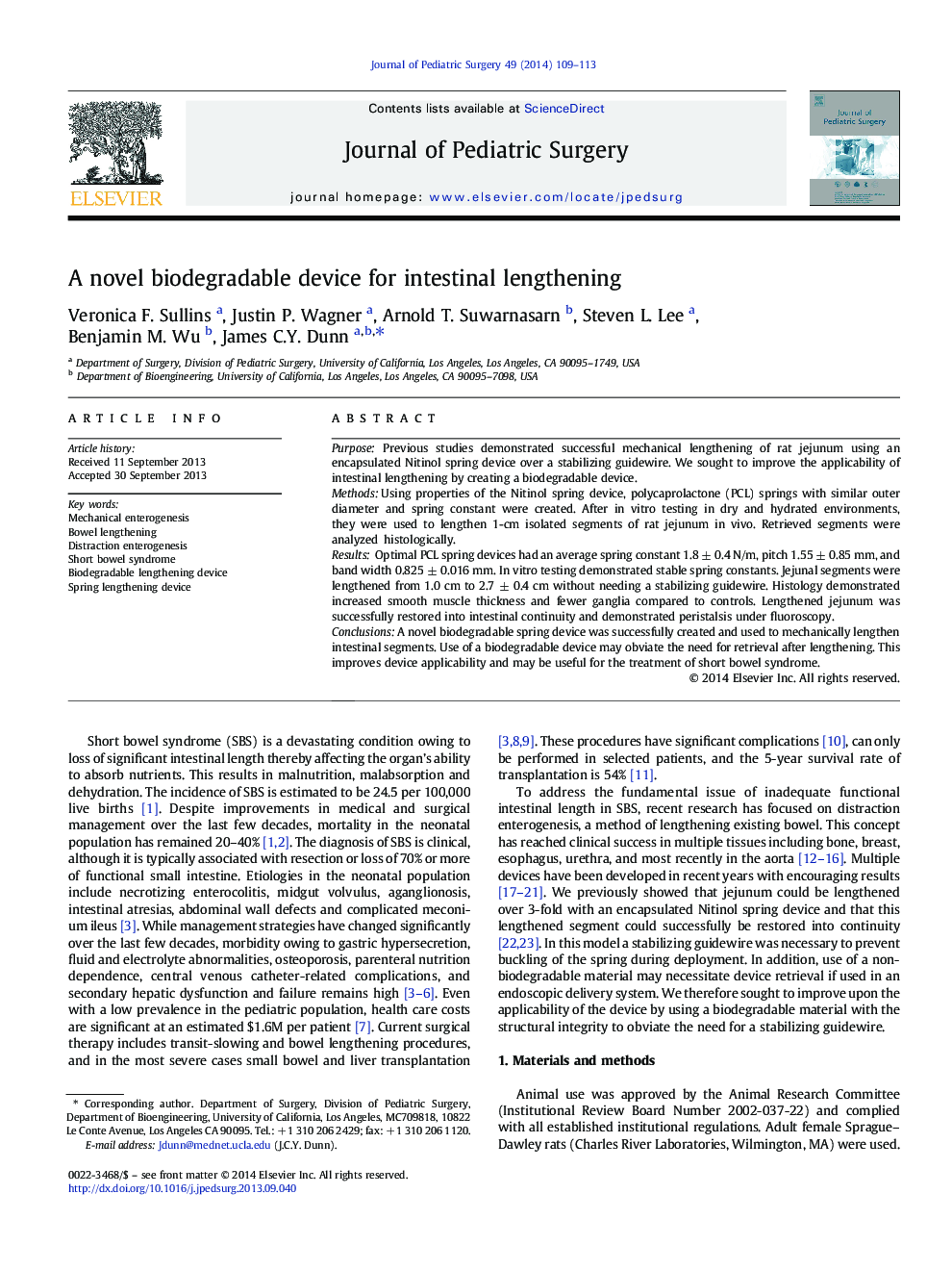| Article ID | Journal | Published Year | Pages | File Type |
|---|---|---|---|---|
| 4156068 | Journal of Pediatric Surgery | 2014 | 5 Pages |
PurposePrevious studies demonstrated successful mechanical lengthening of rat jejunum using an encapsulated Nitinol spring device over a stabilizing guidewire. We sought to improve the applicability of intestinal lengthening by creating a biodegradable device.MethodsUsing properties of the Nitinol spring device, polycaprolactone (PCL) springs with similar outer diameter and spring constant were created. After in vitro testing in dry and hydrated environments, they were used to lengthen 1-cm isolated segments of rat jejunum in vivo. Retrieved segments were analyzed histologically.ResultsOptimal PCL spring devices had an average spring constant 1.8 ± 0.4 N/m, pitch 1.55 ± 0.85 mm, and band width 0.825 ± 0.016 mm. In vitro testing demonstrated stable spring constants. Jejunal segments were lengthened from 1.0 cm to 2.7 ± 0.4 cm without needing a stabilizing guidewire. Histology demonstrated increased smooth muscle thickness and fewer ganglia compared to controls. Lengthened jejunum was successfully restored into intestinal continuity and demonstrated peristalsis under fluoroscopy.ConclusionsA novel biodegradable spring device was successfully created and used to mechanically lengthen intestinal segments. Use of a biodegradable device may obviate the need for retrieval after lengthening. This improves device applicability and may be useful for the treatment of short bowel syndrome.
